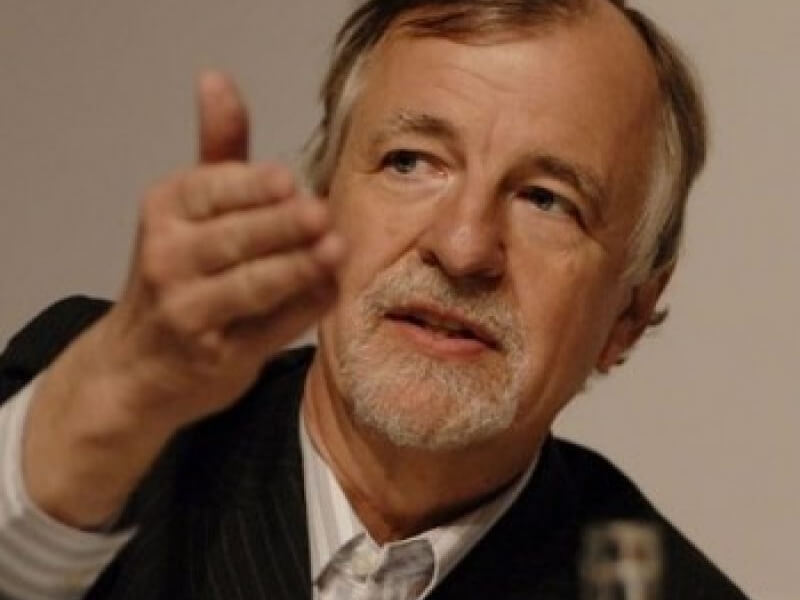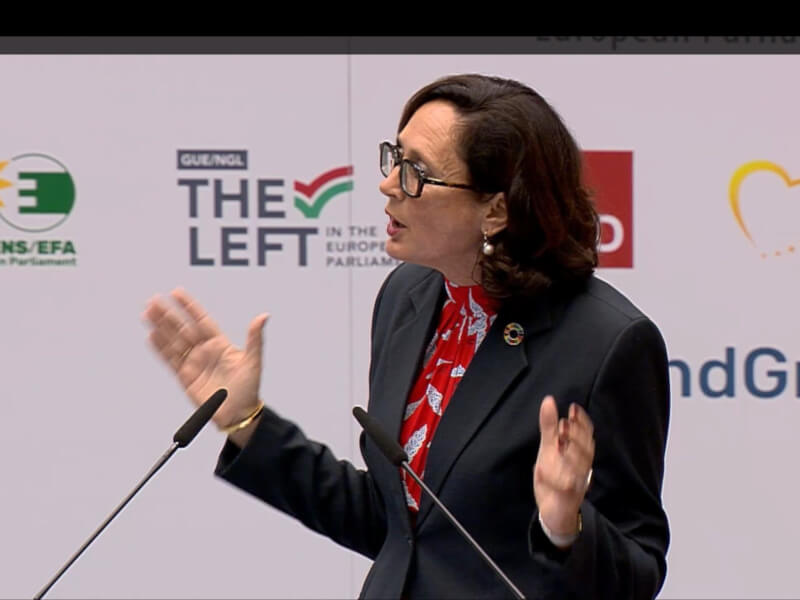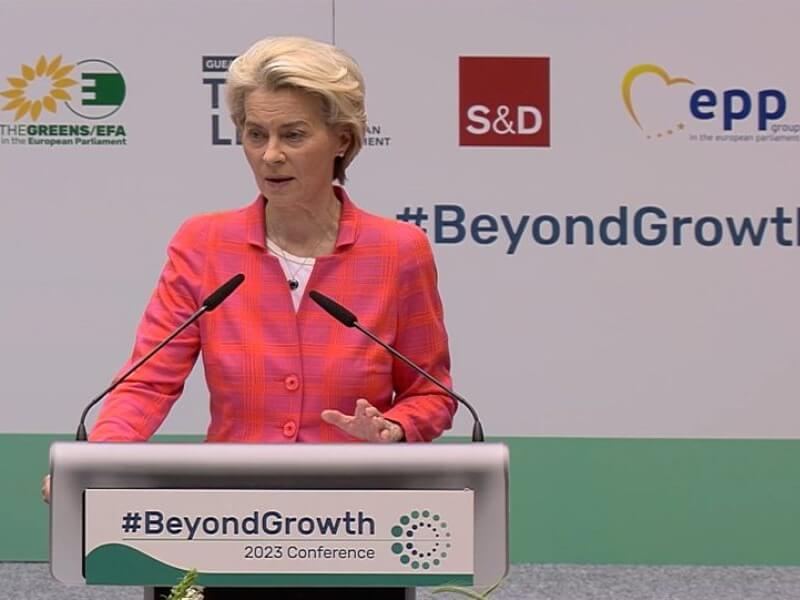02 December 2020 – The Covid-19 pandemic has left humanity reeling, as a virulent viral contagion has also become an economic contagion, destabilizing large swathes of national economies across the world. Meanwhile spiraling government debt, and rising wealth, income inequality and ecological damage prevail.
Much of economic growth across the world has effectively become un-economic growth: with hundreds of millions of people still in grinding poverty, prevailing economic theory and practices are clearly failing much of humanity. Resource depletion, pollution and climate change inevitably undermine the prospects of future generations.
The planetary emergency we face is closely linked to an unprecedented concentration of economic and financial power. All too often, private gains become public costs. The world’s businesses, left to their own devices, can’t be trusted to deliver a sustainable world. A resurgence of strong regional, national and global governance is needed, prioritising fiscal incentives towards sustainable practices.
Perpetual economic growth is impossible on a finite planet. A new approach to economic theory and practice is urgently needed. Restoring the Earth’s living, organic economy should be at the heart of any recovery. We need international agreements for a global green recovery, with economics firmly embedded within sound ecological parameters, and offering a wide range of new employment options.
Specifically, we see the need for the following key steps:
- Beyond GDP
GDP, as the standard measure of national financial well-being, is a highly misleading. Crucially, it does not subtract things that are detrimental to human wellbeing. For instance, the costs of fighting Covid-19 are added up as a contribution to GDP rather than a vast expense funded by government borrowing. The world community needs to agree a comprehensive, alternative indicator, reflecting all aspects of national well-being, as well as the cost of resource depletion, pollution and climate change.
- A circular, regenerative economy
Our linear use of resources exposes societies and business to a number of serious risks. When the unpaid costs of our current, extractive economies are added up, much of economic practice becomes profoundly uneconomic. We need to agree an industrial system that is restorative by intention and design, minimising human pressure on nature, and enabling the continual reuse of resources. Creating regenerative, circular economies will stimulate innovation and many new business and job opportunities.
- Planetary health and human well-being
On a finite planet, stable interactions between human and natural systems need to be embedded in economic theory and practice. Given that destruction of biodiversity appears to create ‘favourable’ conditions for new diseases to arise, the linkages between human health and planetary health must surely become embedded in policy frameworks. A holistic approach to the provision of human health is urgently called for, based on ecological economies that are compatible with the Earth’s ecosystems.
- Regenerative farming
The modern world has separated humans from the soil that feeds us. In many places, vast food factories have replaced family farms. New approaches to securing global food supplies with minimal environmental impacts are urgently needed: Safeguarding long-term soil fertility by well-maintained carbon and nutrient cycles are a prerequisite for long-term food security. And cruel treatment of farm animals linked to over-reliance on meat-based diets cannot be accepted as the global norm.
- Mainstreaming efficient renewable energy
The global climate emergency requires us to rapidly wean ourselves off fossil fuels. Mainstreaming renewables is a prerequisite for creating a sustainable world. Now we have the unprecedented opportunities to do this, as efficient renewable energy technologies have become cost-competitive with polluting energy systems, even as the price of oil and gas weakens. To further speed up innovation, a fundamental shift of subsidies from fossil fuels towards renewable energy is essential.
- Towards carbon positive living
The global climate emergency requires of us to reduce excess carbon in the atmosphere by deliberate measures. This requires responses beyond the actions tentatively agreed by the world’s governments. Above all else, we need well-resourced global initiatives to enhance the biological storage of billions of tonnes of carbon by protecting and regenerating farmland soils, and forest and marine ecosystems.
- Reviving local economies
Globalisation has devalued community living, yet it is widely agreed that local cooperation leads to community resilience, and is a powerful way to cope with crisis situations. There is now unprecedented scope for co-operating globally to revive local economies – prioritising local production for local consumption, and minimizing the need for production based on long-distance transport.
- Less trade in products, more exchange of ideas
In recent decades, global trade has proliferated. But its fragility is becoming increasingly apparent, as expressed in frequent supply-line interruptions in global, just-in-time manufacturing. Furthermore, global relations are still marred by extreme divergence between rich and poor. As the routine global trade in products comes increasingly under question, could there be a new emphasis on a global exchange of ideas?
- Finance for good
Across the world money has been our master, not our servant. The apparent fragility of global financial systems requires new agreements to assure that money is generated and used for the benefit of all. In a planetary ecological emergency, we also need a profound shift of expenditure from military towards environmental security – prioritising adequate water, nutrition, healthcare, shelter, and existential human wellbeing.
- Consumption: from efficiency to sufficiency
Limits to growth also means limits to individual consumption. The steady flow of resources and products from the poorer to the richer countries has major environmental and social consequences. Living under Covid-19 lock-down has encouraged many of us to go back to basics. How can we assure a better distribution of resources across the world, whilst defining suitable limits to the fulfilment of human needs?
- Tax shifting
We need to address the failure of markets to properly consider environmental impacts.
A taxation system that rewards ‘goods’ and penalises ‘bads’ is long overdue, aiming to facilitate an efficient, regenerative, high-employment economy sustained by prudent use of natural capital. Specifically, taxes need to progressively shift from labour to resource use, countering pollution and waste, and promoting efficient, clean production systems, whilst enhancing social welfare and jobs.
- Creating regenerative cities
We are building an urban future, with cities at the heart of national economies, yet global urban resource demands are threatening the very future of humanity and the natural world, with little concern about associated externalities. A new understanding of the economic metabolism of cities is required to assure that their resource demands and waste discharges don’t undermine nature’s regenerative capacity. The widely touted ‘new green deal’ needs to be centered on urban areas, where most people now live.
It is a primary concern for the Club of Rome, and its long-standing ‘trade-mark’ focus on Limits to Growth, to help re-educate academia, politics and business towards a new regenerative economics for a sustainable world, with all the implications summarised in this document.






